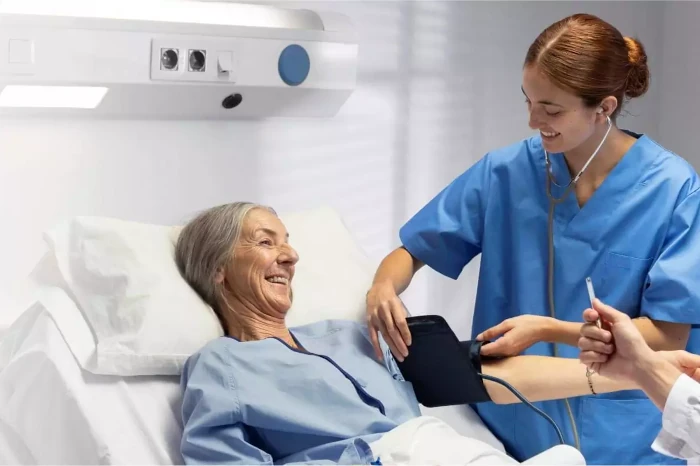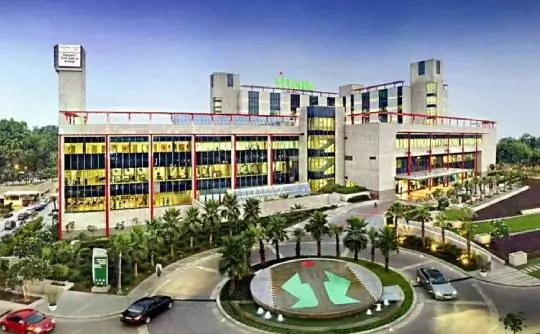

The Liver Transplant cost in India starts from USD 28,000 and varies depending on the patient's medical history, the donor's medical history, the surgeon, the surgical facility, and the city where you choose to get the surgery done.
The cost quoted above is indicative and should not be taken as the final cost of the surgery. The final cost can be ascertained after the surgeon has evaluated the patient. The cost in Indian Rupees can vary based on the exchange rate.
One of the key costs you will face when undergoing a liver transplant in India is the liver transplant surgeon's fee. IndiCure connects you with board-certified surgeons in India who are highly skilled and have delivered successful liver transplant surgeries. While the surgeon's fee can vary based on their experience, you can trust IndiCure to recommend surgeons who prioritize your safety and deliver excellent outcomes when you choose liver transplant surgery in India.
With the hopes of improving patient care, new techniques and technologies are often introduced to the surgical process. Such innovative advancements in the surgical approach can increase costs.
Choosing an accredited surgical facility with skilled and qualified medical staff is crucial for the success of liver transplant surgery in India. In India, larger cities typically offer superior medical facilities and more experienced surgeons, resulting in higher costs. IndiCure Health Tours specifically recommends surgical facilities in larger cities of India to prioritize quality of care and ensure patient safety.
Surgery-related costs encompass both pre-and post-operative expenses. Pre-operative costs are influenced by factors such as the patient's age and medical condition, determining the necessity and type of investigations needed. Post-operative expenses may involve prescribed medications and subsequent follow-up appointments.
At IndiCure, we consolidate most of the expenses for your liver transplant surgery in India to provide you with an inclusive and cost-effective package tailored to your budget and individual requirements. After receiving medical reports, your case manager will provide an estimated surgery cost based on a discussion with the liver transplant surgeon.
The final liver transplant cost in India can however be confirmed after your face-to-face consultation with the surgeon.

We Help you Choose the Right Treatment, Surgeon & Hospital

We Arrange Video/Telephonic Consultation with the Surgeon

We Assist you with Visa & Accommodation

We Receive you at the Airport and Drop you at Hotel/Hospital

We Assist you the at Hospital & Provide Post Operative Support
IndiCure offers exclusive savings on your medical travel. We partner with best hospitals in India to negotiate special rates, ensuring you get the best possible price on your healthcare when you plan medical travel with us.

Here is a set of questions you should consider asking before commencing your journey for a liver transplant in India.
Prepare to answer questions about your:
Organ transplant laws in India are very strict, prohibiting any commercial transaction for liver transplants. Organ transplant law in India allows only blood relatives to donate liver to the patient. A special permission from the Govt. of India is to be taken if an unrelated person wants to donate a part of his or her liver to the patient.
There should be no commercial transaction involved between the donor and the recipient for a liver transplant in India. If the proposed donor or the recipient or both are foreigners and are seeking liver transplant operation in India, a senior Embassy official of the country of origin or the government of the country concerned (authenticated by the Embassy concerned in India) has to certify the relationship between the donor and the recipient.
There is a long waiting time for liver from dead or cadavers, so foreigners usually never get cadaveric donations if they wish to undergo cadaveric liver transplant in India.
Steps for Liver Transplant Surgery in India
NOTE: IT IS IMPORTANT TO NOTE THAT INDICURE DOES NOT ARRANGE DONORS. THE DONOR FOR LIVER TRANSPLANT HAS TO BE A CLOSE RELATIVE OF THE PATIENT (SIBLING/ PARENTS/ CHILDREN/SPOUSE). IN CASE THE DONOR IS NOT A CLOSE RELATIVE, GOVERNMENT PERMISSION IS REQUIRED AND IS GIVEN ONLY IF IT IS ESTABLISHED THAT THERE IS NO COMMERCIAL TRANSACTION INVOLVED BETWEEN THE DONOR AND THE RECIPIENT.
As the latest techniques of liver transplant are advancing, many people from around the world come for Liver transplantation in India. Owing to the low cost of liver transplant in India, highly skilled & experienced surgeons and state-of-the-art hospital facilities, India has emerged as one of the most favorable destinations for organ transplants in the world.
Comparing the cost of liver transplant in India and Western countries, one would find a huge cost difference. The cost of a liver transplant in the US varies between USD 250,000 – USD 315,000 whereas the cost of Liver transplantation in India ranges between US $28, 000 – $50, 000 which is less than one-fourth of the cost of the surgery in the US.
The liver is one of the most vital and largest organs of the human body that serves as the powerhouse of energy as it produces:
Being the largest organ of the human body, it is ideal for storage of essential substances like vitamins and minerals. It metabolizes and detoxifies the substances ingested by the body. Moreover, it also acts as a filter that removes impurities from the blood.
Liver transplantation is a complex and major surgical procedure that is done to replace the damaged or diseased liver with a healthy and normally functioning liver taken from the donor. A liver transplant is the second most commonly performed transplantation in the world after kidney transplant. It is indicated when the liver fails to perform its normal functions due to severe damage to the liver leading to its failure.
Deceased liver donation: involves transplantation of a liver that has been taken from the person who died recently.
Living donor liver transplant: a section of the liver is removed from the living donor and transplanted to the patient. As the liver has a tendency to regenerate itself, both the transplanted and the remaining part of the donor's liver can regrow into the normal-sized liver.
A liver transplant is the option left when all other lifestyle modifications and treatments have not prevented liver failure. Liver failure, however, can happen slowly known as chronic liver failure, or can happen suddenly called acute liver failure.
Regardless of the type, liver failure can occur due to multiple causes but the most common cause for liver transplant is liver cirrhosis which is characterized by chronic scarring of the liver mostly due to hepatitis virus infection or chronic alcohol abuse.
Several other common conditions for liver transplant are:
If the patient is suffering from a liver failure but his heart, lungs, kidneys, and immune system are strong enough to cope with the surgery, if he is mentally and emotionally stable, if the patient has family and friends who can take care of the patient before and after the surgery and if a cadaveric or a living donor is available, the patient is considered good for the liver transplant.
Before the transplant surgery, both the patient and the donor are assessed and made to undergo a battery of tests to ensure that the donor is healthy enough to survive the surgery. The test includes blood testing and matching to check the compatibility. Various other tests and investigations include EKG, Echo, Chest X-ray, Abdominal CT scan, CT Cholangiogram, physical assessment by a physician, hepatologist, and psychological tests.
Liver transplant surgery is a major surgical procedure done under general anesthesia and takes about 12 hours to complete.
The donor is operated first to remove either the left or right lobe of his liver. Once the donor's liver is removed, the surgeon prepares for the transplant of the liver into the patient's body.
The surgeon makes an incision on the upper right part of the abdomen in order to access the liver. The surgeon then cuts the essential blood vessels along with the bile ducts and removes the diseased liver.
The failed and diseased liver is then replaced by the healthy liver from the donor and the blood vessels and biliary ducts are connected to the transplanted liver lobe.
After a complete transplant, the surgeon closes the incisions and the patient is shifted to the ICU for recovery.
One needs to come to India about 2-3 weeks prior to the surgery for pre-operative assessment and paperwork formalities to be completed. A stay for around 6-8 weeks post-discharge would be needed for you to recover enough before you can go back. So, a total of about 12-16 weeks are required for your liver transplant surgery in India.
One needs to stay in the ICU for a week after the surgery and another 3 weeks in the transplant care unit following which the patient is discharged from the hospital. However, the donor will stay at the hospital for about a week.
After the surgery, the patient is moved to the intensive care unit (ICU) for 5-6 days, after which he is shifted to the transplant care unit/room where he would stay for another 3 weeks. It is normal to experience some pain and discomfort which shall be controlled with medications. The doctor will keep a check for any signs of bleeding, infections, or liver rejection. The patient is prescribed medicines to suppress the immune system so that the body does not reject the new liver.
Recovery after liver transplant is a very slow and long process that aims at steadily building the patient's health and fitness. It may take 6 months to resume normal daily activities.
One can expect gratifying results after liver transplant surgery. Most of the patients resume their regular lifestyle after 6 months of successful liver transplant. If supplemented with a healthy diet, regular exercise, and medication, one can lead a healthy and active life after a liver transplant.

Gurgaon
Fortis Memorial Research Institute (FMRI), the flagship hospital of Fortis Healthcare, is a multi-specialty, quaternary care hospital and is counted among the best hospitals in India and the world. The hospital is considered as "Mecca of Healthcare" and a referral hospital, not only in the entire Asia Pacific but much beyond.
The hospital boasts of an enviable International faculty- the clinicians considered to be among the best doctors in the world and even specialty nurses offer nothing but the best in clinical care. The hospital has the most modern, state-of-the-art, cutting-edge technology in the hands of the most technically sound technicians, who offer clinical excellence beyond comparison.

Gurgaon
The Medicity is one of India's largest multi super-specialty institutes located in Gurgaon, National Capital Region (NCR-DELHI). Founded by one of the most renowned cardiac surgeons in India, Dr. Naresh Trehan, Medanta was established with the aim to provide the highest standards of medical care to patients backed by clinical research.
Spread across 43 acres, the institute includes a research center, medical and nursing school. It has 1250 beds and over 350 critical care beds with 37 operation theatres catering to over 20 specialties. Backed by the latest and most advanced technology, the institute is counted among the best medical institution in the world and attracts lots of patients from across the globe.
In advanced and well-equipped liver transplant hospitals in India, the in-hospital survival or success rate is more than 95 percent. This indicates that 95 patients out of 100 get a successful liver transplant and are discharged in good health.
Furthermore, the liver transplant has a very good long-term success rate, with a survival probability of 65 percent to 70 percent 15-20 years after the operation. Patients, including children and athletes, lead normal lives and are able to return to typical activities after 3-6 months of surgery.
Liver transplant, which is a very challenging treatment, carries a 3-5 percent risk of death. Infections and rejection after a liver transplant are the most serious risks.
Yes, if you have a live related donor, who is physically and mentally healthy, between 18-65 years of age, willing to donate part of the liver to you, you can surely undergo liver transplant in India.
The Human Organ Transplantation Act (HOTA) in India strictly prohibits sale of purchase of any organ in India. It is illegal and you cannot buy human liver in India.
You can donate part of your liver to your close relative who is in need of liver transplant, if you are above 18 and in good physical and mental health.
Every year, thousands of liver transplants are performed in India, with a relatively high success rate of over 95%. However, the majority of them are 'live' transplants, in which the liver is donated by a living donor. Because of a scarcity of donors, cadaveric liver donations are quite rare.
The United States performs the greatest number of Liver Transplants in the world. However, India is not far behind in the number and success rate of liver transplants. The big advantage India offers over all other countries is the cost of liver transplant in India, which is less than a fifth of undergoing liver transplant in the United States.
Yes, a female can donate liver to a male. Overall, data from transplants conducted all over the world reveal that gender did not appear to be a factor.
With the advancement in techniques and technology, people as old as 80 and above are donating liver to needy patients. In the current organ shortage, the question is not whether or not older donors should be used, but rather how and to whom they should be used.
No, liver donation does not shorten your life. It is critical, however, for all patients who undergo a significant abdominal surgery to prevent weight gain, smoking, and excessive alcohol consumption. You should return to your regular activities and live a normal, healthy life.
Apart from the liver transplant cost in India, there are additional expenses to consider when planning your trip. This includes budgeting for meals, airfare costs which will vary depending on your location of origin and the time of booking, and ground transportation expenses, such as taxi fares or rental car costs. Lastly, accommodation costs during your recovery period are crucial to consider, whether you opt for a hotel near the medical facility or other lodging options that suit your preferences and budget.
By carefully considering these additional expenses alongside the liver transplant cost in India, you can better plan and budget for your trip to India, ensuring a smooth and comfortable experience during your recovery process.
Make your medical trip to India even more comfortable and complete with our range of additional services, designed to take care of all your needs beyond the hospital.
Traveling abroad for medical reasons can be challenging if you are alone, but with IndiCure by your side, it doesn't have to be. With over fifteen years of experience and an exclusively curated network of India's best surgeons and top hospitals, we make your medical tour to India easier and safer. We will guide you at every step, handling all the end-to-end arrangements for your surgery, travel, and stay.
Ramandeep Dhaliwal
a month ago
I had great experience having rhinoplasty through Indicure. Dr. Ruchika from Indicure has helped me in finding best plastic surgeon, answering all my questions...
Ramandeep Dhaliwal's Full Review
Joshua Archer
3 months ago
My name is Joshua Archer I'm from New Zealand, bay of plenty, kawerau I opted for the bypass surgery in January 2023 but planned it in advance for 28 September found IndiCure...
Joshua Archer's Full Review
Kera Ren
8 months ago
Absolutely loved my experience with IndiCure - from first inquiring to meeting the surgeon pre op to my follow up post op. The surgeon was extremely approachable...
Kera Ren's Full Review
Andreana Paul
5 months ago
Had a wonderful experience. Visited India for my plastic surgery. From sending mails, airport pickup, comfortable accommodation and, to smooth hospital appointment booking...
Andreana Paul's Full Review
Brandi Luce
5 months ago
I had the privilege of using Indicure's services for a cosmetic procedure that I had wanted for a long time but had always been apprehensive about. Ruchika helped me...
Brandi Luce's Full Review
Jade M
3 years ago
Indicure Health Tours went above and beyond my expectations. They helped me with every aspect of my journey and were professional, kind and caring. I was...
Jade M's Full Review
The content on the website (www.indicure.com) is intended to be general information and is provided only as a service. All photographs on our website of before and after results are examples only, and do not constitute an implied or any other kind of certainty for the result of surgery.
Learn about IndiCure Health Tours' comprehensive editorial policy that strives to deliver trustworthy, helpful, relevant, accurate and people-first content on medical tourism in India.
It is not medical advice and should not be taken as medical advice. It should not be used to diagnose or treat a health condition and is in no way meant to be a substitute for professional medical care. You are advised to see a surgeon in person to assess what surgery may or may not accomplish for you.
It is also important to keep your expectations realistic and to understand that all surgical procedures carry risks and should never be taken lightly.